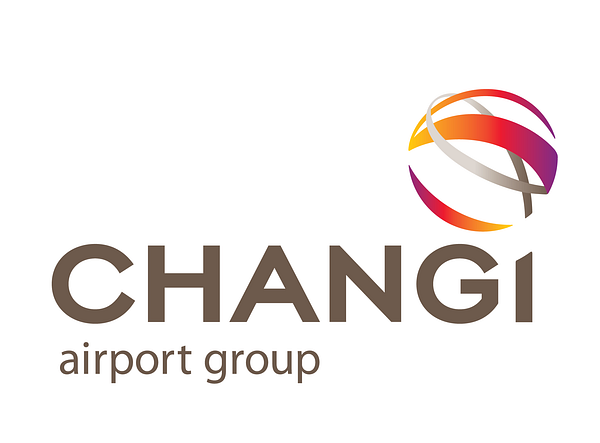Press release -
Hydrogen to be a potential enabler to Singapore’s aviation decarbonisation
The Singapore Hydrogen Cooperation Committee sees hydrogen fuel playing a potential role in the state’s aviation decarbonisation journey.
The working group was formed following the signing of the Cooperation Agreement by Airbus, Changi Airport Group, Civil Aviation Authority of Singapore (CAAS), and Linde in February 2022. Since then, the committee has examined regional and local market demand and supply for hydrogen, the hydrogen supply chain and infrastructure requirements, and the potential considerations for establishing a successful hydrogen ecosystem for aviation in the city-state.
The technology to use liquid hydrogen to power aircraft is currently under development and will only be applied on future generations of large commercial aircraft. The early technical feasibility study undertaken by the committee is useful to ensure that when the technology becomes mature and feasible, Singapore will be well prepared to incorporate liquid hydrogen as part of its aviation decarbonisation strategy.
“Stakeholders in the Asia-Pacific region are increasingly taking greater interest in making significant investments into hydrogen, developing new technologies and establishing supply chains. Together with our partners, we recognise the potential of hydrogen becoming a longer-term decarbonisation pathway for aircraft operations, complementing sustainable aviation fuel, in support of our transition towards net zero by 2050,”said Sabine Klauke, Chief Technology Officer, Airbus.
As part of the study, the committee has identified infrastructure scenarios that could support the progressive deployment of a large-scale supply of liquid hydrogen for aviation at Changi Airport in the longer term future. Singapore’s aviation sector may consume up to 50 tonnes of liquid hydrogen daily from the 2040s, and up to 600 tons per day beyond 2050. These scenarios are based on future hydrogen aircraft with capacities of 100 to 200 passengers, operating range of 1000 to 2000 nautical miles, entering service between 2035 and 2040 in Singapore.
While a 2,000 NM range from Singapore’s Changi Airport would allow an aircraft to reach about 74 airports in 20 Asia-Pacific countries and territories, the committee highlighted that other key factors such as the hydrogen readiness levels at potential destination airports and airlines’ commercial considerations would also be important to realise the eventual hydrogen-powered flights between Changi Airport and other airports in the region.
Mr Han Kok Juan, Director-General of CAAS, said, “The International Civil Aviation Organisation Member States have adopted a collective long-term global aspirational goal of net-zero carbon emissions by 2050. While the near-term focus is on the wider adoption of sustainable aviation fuels in aircraft operations, hydrogen can potentially play a complementary role as a sustainable energy fuel in the longer term. CAAS has shared some of the key findings from the study with relevant government agencies for longer-term national planning for demand of hydrogen and will continue to monitor signposts around the development of hydrogen technology for aircraft operations.”
Ms Poh Li San, Senior Vice President, Terminal 5 Specialised Systems, Changi Airport Group said, “Hydrogen technology is still in its nascency, with many uncertainties and the industry is working hard to study aspects such as operations, safety, regulation and economics. These need to be examined further. As the aviation industry progresses on its sustainability journey, it is prudent to take a phased approach as air hubs study how best to support the use of hydrogen by aircraft.”
“Hydrogen has a key role to play in the global clean energy transition. In aviation, hydrogen shows promise on two fronts: reducing aircraft emissions in the air, and decarbonising airside ground activities,” said John Panikar, EVP and CEO APAC, Linde. “Linde has over 100 years of experience with hydrogen. Our business spans the entire global hydrogen value chain and we look forward to leveraging our capabilities to further develop the promise of hydrogen in aviation.”
To enable hydrogen powered aviation to take-off when the technology, regulations, infrastructure and supply chains are ready, the committee also agreed that it was important to continue monitoring the development of hydrogen technology for aviation around the following signposts:
- Technology: monitor hydrogen aircraft technology maturity and develop related signposts, including the launch of Airbus’ ZEROe aircraft demonstrator in 2027.
- Concept of Operations (CONOPs): monitor development of associated CONOPs for logistics, storage, onsite distribution and refuelling of liquid hydrogen in an airport environment.
- Regulations:monitor development of safety regulatory frameworks and standards around the use of liquid hydrogen for aircraft operations.
- Hydrogen Supply Chain and Airport Infrastructure: monitor development of robust and commercial-scale liquid hydrogen supply chain compatible with an airport (from import, storage, and onward distribution network to aircraft).
- Readiness of other airports for liquid hydrogen aircraft operations.
- Relative price of liquid hydrogen as an alternative aircraft fuel.
Topics
- Tourism
Categories
- 2024
About Changi Airport Group
Changi Airport Group (Singapore) Pte Ltd (CAG) (www.changiairportgroup.com) was formed on 16 June 2009 and the corporatisation of Singapore Changi Airport (IATA: SIN, ICAO: WSSS) followed on 1 July 2009. As the company managing Changi Airport, CAG undertakes key functions focusing on airport operations and management, air hub development, commercial activities and airport emergency services. It also manages the Changi East development project, which includes the building of a new Terminal 5 for Changi Airport. CAG also operates Seletar Airport (IATA: XSP, ICAO: WSSL) and through its subsidiary Changi Airports International, invests in and manages airports around the world.
As one of Asia’s most connected international aviation hubs, Changi Airport links Singapore to some 150 cities globally, with close to 100 airlines operating more than 6,400 flights weekly. Jewel Changi Airport, a multi-dimensional lifestyle destination, opened in April 2019, bringing Changi Airport’s shopping and dining offering to over 600 F&B and retail outlets. The world’s most awarded airport, Changi has won over 670 accolades for its consistent and excellent airport staff service, passenger experience and safety standards.
Follow Changi Airport on social media: Facebook| X| Instagram| LinkedIn| YouTube| Telegram| TikTok
